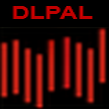An Interesting Analysis of Shiller’s CAPE Ratio
An interesting new academic paper related to an actual issue – a high valuation of us equities:
Authors: Dimitrov, Jain
Title: Shiller's CAPE: Market Timing and Risk
Link: https://papers.ssrn.com/sol3/papers.cfm?abstract_id=2876644
Abstract:
Robert Shiller shows that Cyclically Adjusted Price to Earnings Ratio (CAPE) is strongly associated with future long-term stock returns. This result has often been interpreted as evidence of market inefficiency. We present two findings that are contrary to such an interpretation. First, if markets are efficient, returns on average, even when conditional on CAPE, should be higher than the risk-free rate. We find that even when CAPE is in its ninth decile, future 10-year stock returns, on average, are higher than future returns on 10-year Treasurys. Thus, the results are largely consistent with market efficiency. Only when CAPE is very high, say, CAPE is in the upper half of the tenth decile (CAPE higher than 27.6), future 10-year stock returns, on average, are lower than those on 10-year U.S. Treasurys. Second, we provide a risk-based explanation for the association between CAPE and future stock returns. We find that CAPE and future stock returns are positively associated with future stock market volatility. Overall, CAPE levels do not seem to reflect market inefficiency and do reflect risk (volatility).
Notable quotations from the academic research paper:
"Among various market valuation indicators proposed over the history of the stock market, one of the most popular ones is Robert Shiller’s Cyclically Adjusted Price to Earnings Ratio (CAPE). CAPE is defined as the current price of the S&P 500 index divided by the S&P 500 index’s ten-year average inflation-adjusted earnings. John Campbell and Robert Shiller have analyzed the relationship between CAPE and future stock returns in a series of articles. They show that future 10-year stock returns on the S&P 500 index are negatively associated with CAPE. Shiller (1996, p. 2) concludes that “…the association seems so strong as to suggest that this relation is not consistent with the efficient markets or random walk model.” In contrast, proponents of market efficiency argue that this evidence is consistent with “rational swings in expected returns” (Fama). The debate continues unabated to this day and interest in understanding CAPE remains high.
In this paper, we present two sets of analyses to shed light on this ongoing debate on market efficiency. First, if markets are efficient, knowing CAPE should not help investors earn superior future returns by selling (buying) stocks and buying (selling) a risk-free asset when CAPE is high (low). In other words, market timing strategies using CAPE should not be profitable. However, we are not aware of any formal tests of such strategies. We find that with the exception of the periods when CAPE is in the upper half of its 10th decile (CAPE higher than 27.6), on average, it is not beneficial to time the market. For the most part, investors cannot profit from the evidence that CAPE is associated with future 10-year stock returns. Second, if markets are efficient, CAPE (and future stock market returns) should be associated with overall risk in the stock market. We test this hypothesis by analyzing the association between CAPE (and future stock market returns) and future stock return volatility (risk). We find that CAPE (and 10-year future stock returns) is associated with future 10-year volatility of stock returns. Thus, risk as measured by volatility seems to be a potential explanation for CAPE-based patterns in stock returns. Overall, the ability of CAPE to forecast future stock market returns appears consistent with a positive association between risk and returns. It does not seem to imply that markets are inefficient."
Are you looking for more strategies to read about? Check http://quantpedia.com/Screener
Do you want to see performance of trading systems we described? Check http://quantpedia.com/Chart/Performance
Do you want to know more about us? Check http://quantpedia.com/Home/About
Share onLinkedInTwitterFacebookRefer to a friend
























